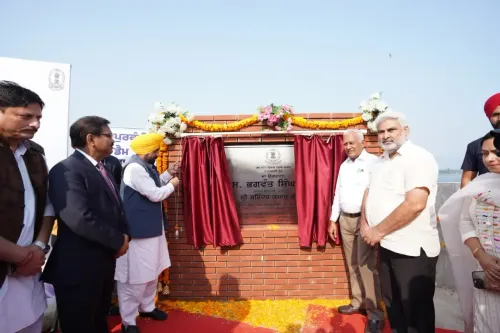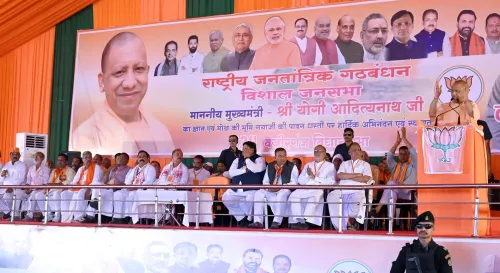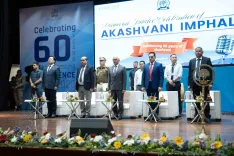How is Jamia Millia Islamia Enhancing Skill-Based Education with CBSE Principals?

Synopsis
Key Takeaways
- Integration of skill-based education into school curricula is a priority.
- The initiative aligns with the National Education Policy (NEP) 2020.
- Collaboration between CBSE and higher education institutions is crucial.
- The importance of mother tongue in education was emphasized.
- Jamia Millia Islamia showcases diverse skill development programmes.
New Delhi, April 29 (NationPress) In a bid to enhance skill-based education, Jamia Millia Islamia (JMI) welcomed 50 principals from CBSE-affiliated schools across India to explore the initiatives at its vocational education centres, as reported on Tuesday.
The Vice Chancellor, Prof. Mazhar Asif, underscored the significance of skill development, reaffirming the objective of achieving ‘One Hunar (Skill) for Every Student’ prior to their graduation from Senior Secondary education.
The two-day event held on April 24-25 was part of an initiative by the Ministry of Education under the National Education Policy (NEP) 2020, aiming to provide school leaders with valuable insights into best practices, innovative resources, and opportunities for future collaboration, thereby promoting the integration of skill education into school curricula.
This visit aligns with CBSE’s collaboration with Higher Education Institutions to advance skill-oriented education, according to a statement from JMI.
The programme was initiated with an opening session that showcased Jamia Millia Islamia's rich heritage, faculties, departments, centres, and various programmes available.
Guided by the Vice Chancellor, the exposure sessions were meticulously curated to offer participants a thorough understanding of the university’s skill development efforts, as stated in the release.
Coordination for the event was handled by Dr. Mohd. Faijullah Khan, Associate Professor, alongside the principals of Jamia Schools — Dr. Mohd. Arshad Khan, Shagufta, Anjum, Nusrat, Ruksana, and Qutubuddin.
Throughout the two days, attendees delved into essential skills taught by the university and toured its vocational education centres, which included the Centre for Innovation and Entrepreneurship, Centre for Distance and Online Education, Central Instrumentation Facility (CIF), AJK Mass Communication and Research Centre, University Library, Centre for Coaching and Career Planning, Faculty of Life Sciences, Faculty of Education, and Jamia Schools.
Presentations detailing the skill-based programmes offered at each centre were conducted, complemented by facility tours and engaging sessions with directors and faculty members.
Prof. Md. Mahtab Alam Rizvi, Registrar of JMI, emphasized the vital role of the mother tongue (regional/local language) in education, especially in the area of skill development.









